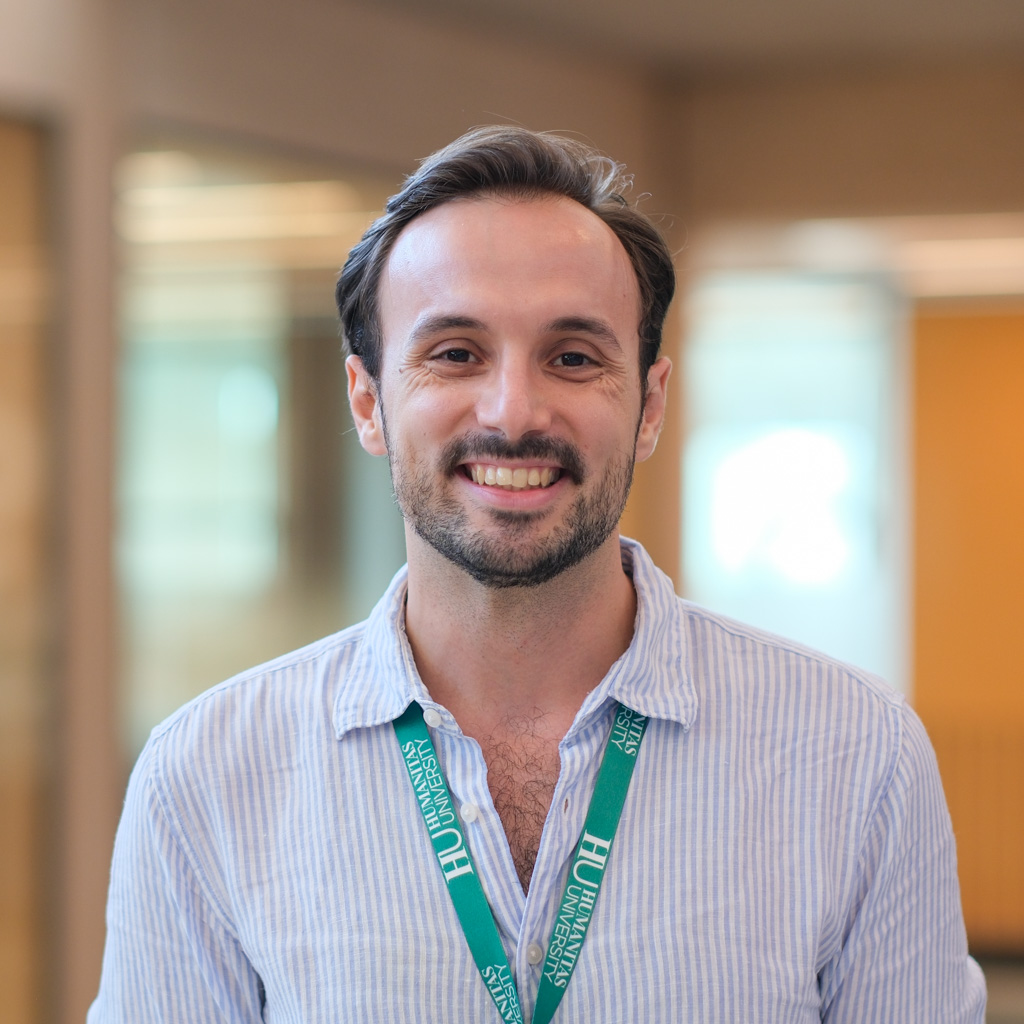Michele holds a PhD in Artificial Intelligence, specialising in Health and Life Sciences, from Italy’s first National PhD Programme in AI. During his doctoral studies, he was co-enrolled at “Campus Bio-Medico University of Rome” and “The University of Rome Tor Vergata”. His research was conducted as part of a European Horizon 2020-funded projects. He also earned a Master’s degree with honours in Computer Science.
Before joining Humanitas, Michele worked at NEC Laboratories Europe in Heidelberg (Germany), as part of the Biological AI group, where he developed machine learning models for classifying and generating SARS-CoV-2 mutations. He was also a visiting research student at “The University of Edinburgh” (the UK), contributing to the creation of training corpora for AI models studying interactions between proteins, peptides, and HLA-I molecules in cancer genomes. Additionally, he held a research fellowship at the University of Rome Tor Vergata.
Michele has authored several peer-reviewed publications presented at leading international conferences in natural language processing and machine learning, including ACL, EMNLP, LREC and COLING. He has also served as a programme committee member for domain-specific AI workshops.
Currently, he is an AI researcher in the Computational Biology Lab at Humanitas, focusing on developing foundation models for cancer analysis through machine learning approaches applied to multi-omics data.
